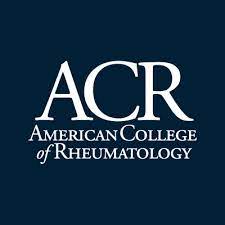Article
ACR Updates Guidelines for Juvenile Idiopathic Arthritis Treatment
Author(s):
The American College of Rheumatology releases 2 new guidelines for treating patients with juvenile idiopathic arthritis.

The American College of Rheumatology (ACR) has updated 2 guideline papers that address treatment practices for patients with juvenile idiopathic arthritis (JIA). The new guidelines accompany a comprehensive overview of JIA guidelines produced by the ACR and the Arthritis Foudnation, which were last updated in 2019.
Updates regarding the pharmacologic management of juvenile idiopathic arthritis is included in one of the new papers. Treatment of oligoarhtritis, temporomandibular (TMJ) arthritis, and systemic JIA (sJIA), with and without macrophage activation syndrome (MAS) are highlighted.
Non-pharmacologic therapies, medication monitoring, immunizations and imaging, irrespective of juvenile idiopathic arthritis phenotype are primary focus of the other updated paper.
The updated approach for using disease-modifying antirheumatic drugs (DMARDs) has adapted to early implementation of these conventional synthetic and biologic treatments. This exemplifies one way that the practice of rheumatology is ever-evolving.
“For many years, treatment of JIA consisted of corticosteroids, non-steroidal anti-inflammatory drugs (NSAIDs), physical therapy, bracing and surgery. There were no DMARDs and even if there were, they were not tested or used in children,” Karen Onel, MD, Chief, Pediatric Rheumatology Division at the Hospital for Special Surgery in New York, lead investigator of the guidelines said in a statement.
“These guidelines stress the early use of conventional synthetic and biologic DMARDs and the avoidance of glucocorticoids and NSAIDs," she continued. "In fact, for systemic JIA the guidelines suggest using biologic DMARDs as a first line. We have turned the pyramid upside down.”
The updates include monitoring drug toxicities for children with JIA and also emphasized the importance of immunization. Recommendations of laboratory test monitoring for specific medications including non-steroidal anti-inflammatory drugs (NSAIDs), methotrexate, and hydrochoroquine were addressed on pages 6-9 of the paper.
Revised guidance for children with juvenile idiopathic arthritis who are receiving immunosuppression, who are not on immunosuppression, and who are under-immunized or unimmunized can be located on pages 10-11. Recommendations for interventions like physical therapy and occupational therapy are included, as well as helping patients acheive a healthy, well-balanced, age-appropriate diet.
However, the overarching recommendation throughout both updated papers is that the shared decision-making between the patient, caregiver and the provider is the most important factor.
“As rheumatologists, our patients and caregivers expect us to review the literature and weigh the evidence so that we can suggest the best treatments, while also considering their preferences,” Oncel said. “The field has changed tremendously since the 2011 and 2013 efforts, so we needed to adapt our guidance to the times in order to offer our patients the most nimble and state-of-the-art care possible.”




